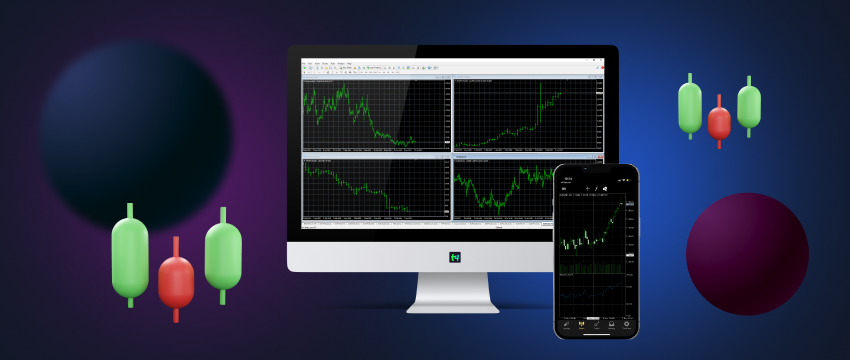New Reasons To Selecting Forex Trading Websites
New Reasons To Selecting Forex Trading Websites
Blog Article
Top 10 Market Knowledge And Strategy Tips For Those Who Are Considering Trading Forex Online
Here are the top 10 strategies to trade Forex online: 1. Be sure to have a good understanding of the market and its strategies. 2. Control your risk. 3. Increase your chances of getting successful. Here are 10 tips for trading Forex online to aid you in improving your understanding of markets.
Understanding the Economic Indicators
Forex is built on economic indicators such as the growth in GDP, employment data and inflation numbers. They reflect the general health of a specific country. In general, solid data on employment statistics in the U.S. tends strengthen the USD. Be aware of the economic calendar so you're aware of important announcements that could affect currencies.
2. Focus on Risk Management
The management of risk should be a priority from the start. Set your stop-loss limits and take-profit amounts to protect your investment and avoid excessive losses. Many of the most successful traders recommend that you only risk just a tiny fraction of your total account (e.g. 2 to 2 to) on any one trade.
3. Utilize Leverage With Care
The leverage can cause gains as well as loss, so be careful. Although brokers offer a high leverage rate but it's advisable to start with lower leverage until you are familiar with the market and how leverage affects your investments. Over-leveraging is among the most frequently made errors that can lead to massive losses.
4. Plan your trades
A solid trading plan will allow you to remain disciplined. Determine your trading goals, the entry and departure points, and your tolerance to risk. Plan out your trading strategies. This involves determining whether you're using technical or fundamental analysis.
5. Master Technical Analysis Fundamentals
It is essential to analyze the technical aspects of Forex trading. Learn about candlestick patterns and moving averages. Learn about trends lines, resistance levels and support levels. These tools can help identify potential trade opportunities and manage the entry and exit points efficiently.
6. Stay updated on Global News
The market for currency can be affected by events in the political arena, trade agreements as well as central bank policies and natural catastrophes. For instance, the sudden cut in rates by a central banking institution can devalue the currency. Staying informed about global events will help you predict potential market movements.
7. Select the Right Currency Pairs
Certain currency pairs are appropriate for beginners. These include EUR/USD (EURo Dollar) GBP/USD (GBP/USD) USD/JPY and USD/USD. The exotic pairs could offer greater returns but can also be more unstable. Understanding the specifics of these currency pairs will help to select the one that is best suited to your trading style and tolerance for risk.
8. Do some practice on a Demo Account first
Before you begin trading live, use an account with a demo account to test strategies and become familiar with the trading platform. It is a good idea to gain confidence using a demo account to test your strategy and make mistakes.
9. Monitor Interest Rates & Central Bank Policies
Central banks have a significant impact on currency valuations, through interest rates and their money-making policies. The higher rates of interest can bring in foreign capital, which can strengthen the currency, whereas lower rates might reduce its strength. The Federal Reserve, European Central Bank and other central banks make choices that can have a significant impact on currency trends.
10. Maintain a Journal of Your Trades
A comprehensive log of trading activity can help improve discipline and to identify your strengths and weaknesses. Document your trade's entry and departure points, the reason for the transaction, and results. Examining this information regularly will reveal patterns in your trading and help refine your trading strategy over time.
In short, success in Forex trading is based on extensive market knowledge along with strategic planning and a disciplined execution. Stay informed, control your risk, and adjust strategies as the market evolves. Read the top rated https://th.roboforex.com/ for website advice including regulated forex brokers, forex and trading, forex trading strategies, forex trading platform, forex trading brokers list, good forex trading platforms, broker trading, foreign exchange trading platform, forex trading strategies, regulated forex brokers and more. 
When Considering Online Forex Trading You Should Take Into Consideration The Following Tips:
Fundamental analysis and technical analysis are crucial to Forex trading. You can make better decisions when you are proficient in them. Here are 10 top strategies for using fundamental and technical analysis in trading online Forex trading.
1. Find out the most important levels of resistance and support.
Zones of resistance and support are price zones in which a currencies often stop or reverses. These levels act as psychological stumbling blocks, making them vital for planning entries and exits. Use these zones as a reference to identify where prices might be able to reverse or break.
2. Use multiple timeframes to gain an overall view
Different timeframes, such as the daily, four-hour and one-hour charts can be utilized to gain insight into larger and longer-term trends. The higher timeframes will show you the overall trend, while lower timeframes will reveal the entry points and time.
3. Master Key Indicators
Moving averages as well as Moving Average Convergence Divergence, or MACD are three of the most crucial Forex indicators. You can enhance your understanding by understanding the way each indicator works and combining them.
4. Candlestick patterns are important to keep in mind
Candlestick patterns like dojis, hammers and engulfings patterns can often indicate possible reverses. Be familiar with these patterns in order to spot potential changes in price action. Combining candlestick analysis along with other tools, including support and resistance, can help improve your trading timing.
5. Utilizing Trend Analysis to Find Directional Information
Use trendlines or moving averages to identify market trends. Forex traders usually follow the trend, as trading in the direction the trend follows usually produces more profit. Avoid counter-trend trading in the event that you do not have the necessary knowledge.
Fundamental Analysis Tips
6. Learn about central bank policies and interest rates.
Central banks, like the Federal Reserve and the European Central Bank, control interest rates that directly impact currency values. High interest rates can increase the value of currencies, while low rates can reduce their value. Keep track of central bank announcements as they often trigger significant market moves.
7. Keep track of Economic Indicators Reports
The most important economic indicators, such as GDP (gross domestic product) and the rate of unemployment, inflation and consumer confidence, can provide an insight into the overall health of a country, and impact the value of its currency. Stay informed with an economic calendar and see how these indicators impact your trading.
8. Geopolitical Events and News Analysis
Markets can be affected by events like elections, conflicts or trade negotiations. Be informed about the latest global news, specifically on major economies such as the U.S., Eurozone, and China. Be prepared to adjust your strategy in the event that sudden geopolitical developments take place.
Combining technical and fundamental analysis
9. Align the technical signals with the fundamental events
Combining fundamental and technical analysis can improve the process of making decisions. For instance, if the technical setup suggests an upward trend and an economic report that is positive is anticipated, both factors can confirm the credibility of buying signals. By combining both strategies to reduce uncertainties and increase the chance of successful trading.
10. Make use of risky events to trade Opportunities
The risk of volatility caused by major events, like Federal Reserve meetings or the publication of non-farm wages (NFP), can cause rapid fluctuations in prices. Many traders steer clear of these unpredictable events as they are difficult to forecast. However, if your experience is good and you're capable of using the technical analysis associated with these events to profit from price movements. Take care and make sure you use strict limit on stop-loss. Also, be prepared to rapidly adapt.
Forex traders can get an knowledge of market trends by combining technical and fundamental analysis. Through mastering these techniques traders can better navigate currency market and make smarter decisions, improve performance, and more. Read the recommended https://th.roboforex.com/forex-trading/assets/other-assets/ for more recommendations including trading foreign exchange, fbs broker review, fx trading platform, top forex brokers, forex trading trading, foreign exchange trading platform, forex trading forex, broker trading, 4x trading, forex broker and more.
Top 10 Strategies For Achieving Your Personal And Financial Goals While Trading Forex Online
Forex trading success depends on the setting of clear financial and personal goals. A clear set of goals will help you stay focused and focused, while also keeping you on track with the financial objectives you have set. Here are ten top tips to help you set and achieve your personal and financial trading goals.
1. Define Your Financial Objectives Clearly
Establish specific financial goals like a percentage target for your annual return or goals for monetary income. Decide if your goal is the growth of capital, additional income, or wealth protection. Clarity in your objectives will enable you to select strategies which align with the outcomes you want to achieve.
2. Create a realistic and believable timeframe
Training, learning and growing in the field of forex trading is a process that takes time. Set short, medium, and long-term goals that track your progress and prevent unreasonable expectations. If you want to achieve steady monthly returns, your long-term aim could be developing a successful trading strategy.
3. Determine Your Risk Tolerance
Check your confidence in risk and make sure that your goals are aligned. If, for instance, you're hoping at high returns, be ready for higher volatility and potential losses. Knowing your risk tolerance will allow you to choose strategies that aren't over your comfort zone and assist you to set your targets.
4. Plan a Capital Allocation Strategy
Determine the amount you're able and willing to spend on Forex trading. Make sure your investment in trading capital is one you can afford to lose without affecting your financial stability. It is then possible to ensure that your trading won't affect the money you'll need to pay bills, saving or other obligations you have for yourself.
5. The main goal should be to build abilities.
Instead of focusing solely on the financial gain, set it a goal to continuously enhance your trading abilities and knowledge. Your skill development goal can be to master certain trading strategies, enhance your risk management skills, and master the art of controlling your emotions under stress. Over time, skills become more consistent and refined.
6. Prioritize Consistency Over Large Wins
Many traders are seeking rapid, massive gains, but they know that regular gains over time are more reliable. Set an annual goal to reach the optimum percentage gain. You can improve your track record by focusing on a consistent increase in returns.
7. Make it a point to review and track your performance on a regular basis
It is a good idea to keep a trading diary in which you record all your trades, analyze the outcomes, and consider the lessons you have learned. Monthly or quarterly reviews of your performance can help improve your strategy, stay accountable for your goals and adapt your strategy.
8. Create goals for psychological and behavioral change
Trading requires mental discipline and emotional control. Set goals related to psychological factors, such as keeping your trades from being impulsive, adhering to your plan for trading, or controlling the urge to take revenge on a the trader. These goals help to develop a resilient and disciplined mind.
9. Beware of comparisons with other people
The Forex trading journey is personal, and comparing your results with others can result in excessive pressure and risky choices. Set goals based on your personal performance and financial abilities rather than the outcomes of others. Focus more on gradual improvements than beating others.
10. Exit Strategy or Financial Milestone:
You might want to set a goal for yourself which will allow you to halt your trading, withdraw profits or assess your overall performance. You can, for example you can withdraw some of your earnings once you've reached a certain profit threshold, and enjoy them or put them into other areas. It is crucial to establish a point at which you will put aside your trading and enjoy your gains.
The process of setting and managing financial and personal Forex trading goals that are well defined can increase your discipline and reduce stress, and help guide you to long-term growth. Be sure to modify your goals as you progress and focus on continual improvement as well as consistency and accountability for yourself. Have a look at the recommended https://th.roboforex.com/about/company/documents/ for more recommendations including forex demo account, foreign exchange trading online, forex broker platform, forex trading demo account, best rated forex brokers, fbs broker review, forexcom, forex app trading, trading foreign exchange, forex market online and more.